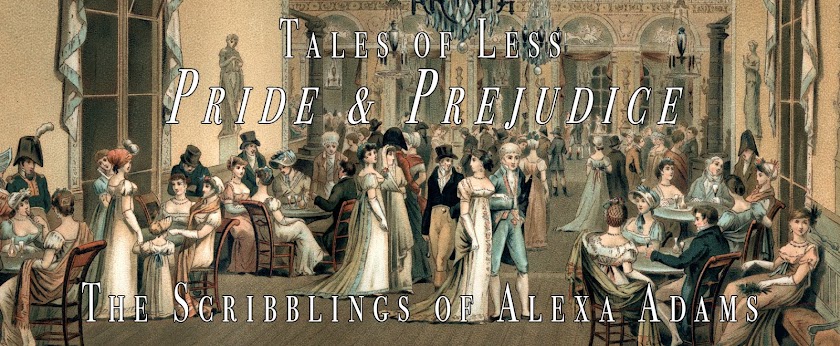 |
| Watercollor by C.E. Brock, mollands.net |
"Come, Miss Morland, let us leave him to meditate over our faults in the utmost propriety of diction, while we praise Udolpho in whatever terms we like best. It is a most interesting work. You are fond of that kind of reading?"
"Yes, I am fond of history."
"I wish I were too. I read it a little as a duty, but it tells me nothing that does not either vex or weary me. The quarrels of popes and kings, with wars or pestilences, in every page; the men all so good for nothing, and hardly any women at all -- it is very tiresome ..."
Tiresome, indeed. It is strange that so many of humanity's most beloved stories should be about war, when war makes for such bad narrative. Readers will raise an outcry when a fictional character's behavior is unexplained or erratic, but reality is often unexplainable. The mayhem of war has no carefully sculpted story arc to cling to. It is perfectly senseless - an exercise in stupidity - and utter chaos.
Oh, how I loathed military history as a child.
Northanger Abbey was my first Austen novel, read at an age when I had no ability to appreciate it, but I liked it well enough to seek out more Austen (I had read most of her novels before the age of 13). I don't remember many of my impressions from that first introduction, but I do remember the scene quoted above and feeling in perfect agreement with Catherine's assessment of history. It was precisely how I felt about what I had already taken to differentiating as military history, a quite distinct field of study from the social history with which I was totally enthralled (the very reason I was reading an 18th century novel in the first place). Austen, despite my incomprehension, offered me a window into how people lived in bygone times. I loved her stories of common concerns and daily life. I did not like endless descriptions of battles and tales of the worst things that humans have ever done to each other.
I think I possessed some modicum of real wisdom as a child. The present and the future have enough horrors on offer and in store. Like Catherine Morland, I studied military history "as a duty, but it never revealed anything that didn't either vex or weary me." As a child, I was inundated with it. My grandfather, in whose house my mother and I lived, served in the US Navy in WWII. The room we called "the den," and in which I primarily played, was adorned with period German army helmets, guns, and even a deactivated grenade (it and a bugle I found to be excellent toys - the helmets were too heavy to be fun, and the guns scared me). In Hebrew school, which I attended seven hours a week, my teachers were largely concentration camp survivors. Only a few had those terrifying blue numbers tattooed on their forearms, but they all had stories to tell of childhoods scarred by unthinkable atrocities. Their most prevalent message: this could happen again. This happened to me. This could happen to you. Be vigilant.
I was so fortunate as to be growing up in the United States, largely isolated from the conflicts that my government and those of others waged against each other, across an ocean. I couldn't hear the bombs falling on many of those I now call friends, but I did know they were out there, and I knew that it could just as easily be me, hiding underground, hoping to somehow survive the onslaught. My time to live such history would likely come. Why dwell more than necessary on that aspect of the past?
Not many of my teachers agreed with this perspective. Perhaps it was inevitable, growing up near Philadelphia, that I should spend countless hours wilting away on old battlefields, listening to detailed accounts of each charge and retreat. There is always such an eerie incongruousness between these sunny fields and the blood that once soaked their soil. I hated every moment.
How comparatively peaceful were Austen's drawing rooms and carriage rides! Yet her world was also at the mercy of the "quarrels of popes and kings, with wars or pestilences." Very few of her days were lived in times of so-called peace. Do you think she escaped into the world of her novels, just as much as we, her devoted readers, do now? Pride and Prejudice was an established favorite amongst British troop in the trenches during WWI. It is yet another aspect of Austen's genius: this ability to zero in on the minutiae of daily life and render it thrilling, sweeping the reader out of time and space to a happily ever after ending at Pemberley.
I wish real life were as orderly as a novel. I wish I could analize it in a tidy essay, my conclusions backed up by contextual evidence, but it is impossible. Hubris to try. Instead, I pay attention, try to listen instead of just talk (a lifelong struggle), and concentrate on discovering the same enthusiasm for the minutiae of my daily life as I can in those of Austen's characters. Military history is adding to its gory portfolio nearby. I suppose the time is ripe to dwell on life's simple joys. Maybe I'lll even write about them, and maybe they will then do someone else a little bit of good.
